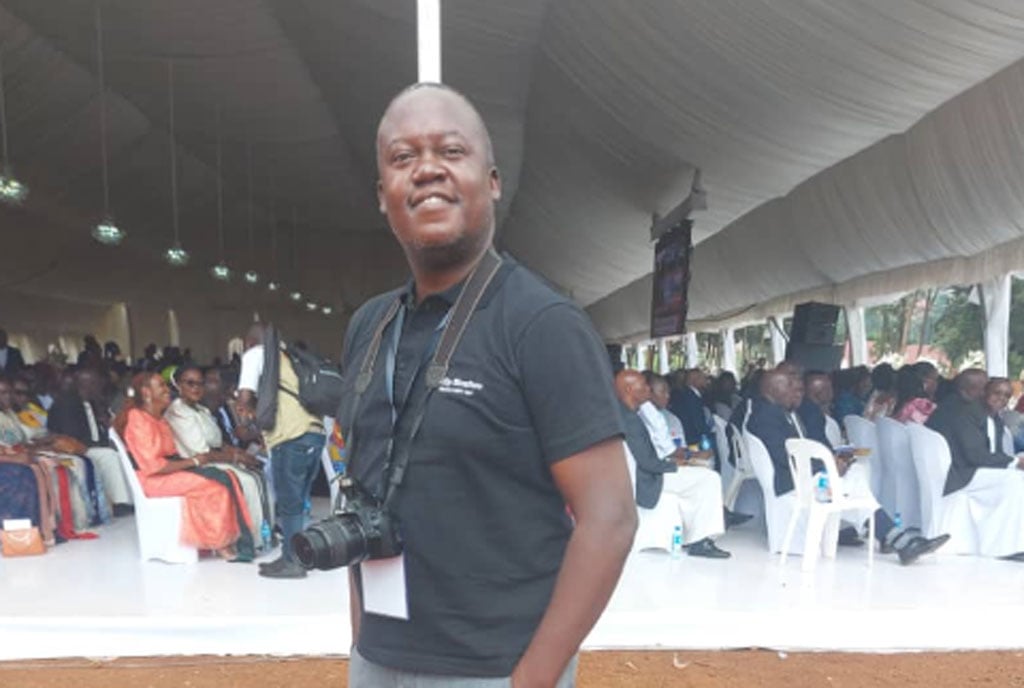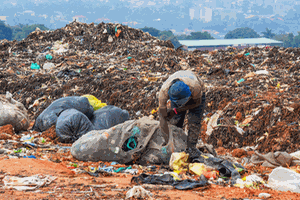Early detection, prevention of cervical cancer is affordable, says Jinja hospice

Ms Irene Naleba, a palliative care clinical officer at Rays of Hope Hospice Jinja (Left) interacts with breast cancer patient Namukose Faridah* (not real names) in Iganga District, June 2024. PHOTO/PHILIP WAFULA
What you need to know:
- Through community outreaches, the hospice takes the services as nearer as possible to the community, mobilise the ladies to come to the nearest health facility and a team of qualified screeners takes to them the service.
Dr Margrethe Juncker, a medical professional at Rays of Hope Hospice Jinja (RHHJ), the sole specialized palliative care provider in the Busoga Sub-region and parts of Buganda, emphasized that preventing cervical cancer is both cost-effective and vital, particularly when detected early.
Dr Juncker highlighted that one of the leading reasons for enrollment at RHHJ has been cervical cancer in women.
"Prevention is better than cure, not only for the individual but also for society. A mother’s death is a disaster for her family, community, and country," she said in an interview on October 8.
She stressed that prevention is affordable compared to the long-term societal and financial costs of losing a mother. "It is cheaper to treat cervical cancer in its early stages than to deal with the loss of a mother," Dr Juncker said.
The World Health Organization (WHO) has an effective program aimed at eliminating cervical cancer, particularly in Africa, where cases are most prevalent.
Dr Juncker recommended preventive measures such as vaccinating girls aged 10-14, regular screening even in the absence of symptoms, and early treatment.

Dr Margrethe Juncker from Rays of Hope Hospice Jinja (RHHJ) speaks during the interview in Jinja City on October 8, 2024. PHOTO/PHILIP WAFULA
Since 2018, RHHJ has screened nearly 11,000 women in the Busoga region, with approximately 6 percent showing pre-cancerous lesions. "This suggests that something is going wrong," she explained.
Recently, during a screening at Mayuge District's landing site, seven out of 91 women tested positive for early-stage cervical cancer and were treated on-site.
Ms Irene Naleba, a clinical officer leading RHHJ's cancer prevention department, noted that many cases presented at the hospice in its early days showed advanced signs of cervical and breast cancer.
However, in 2018, RHHJ expanded its services to include cervical cancer prevention and screening, reaching numerous areas in the Busoga Sub-region.
"Cervical cancer is often asymptomatic in its early stages, so we emphasize routine check-ups. Most women feel fine while cancerous lesions are already developing," said Ms Naleba.
Ms Naleba also pointed out that cervical cancer develops over time, making it preventable. The government provides HPV vaccines free of charge to young girls, and RHHJ advocates for vaccination alongside cervical cancer screening through community outreach programs.
During screening campaigns, RHHJ brings treatment equipment, such as thermocoagulation machines, to treat pre-cancerous lesions immediately. Those found with advanced cancer are referred for biopsies and receive palliative care, while HPV awareness is promoted at the village level.
Uganda currently has only one fully functional treatment center, the Uganda Cancer Institute (UCI), which is inaccessible to many due to financial constraints. This has pushed RHHJ to prioritize prevention.
Statistics
Mr John Mwayi, RHHJ’s Monitoring and Evaluation Officer, reported that since 2019, 10,362 women have been screened, with 5.8 percent testing positive for pre-cancerous lesions. About 82 percent of these women received on-site treatment.
RHHJ has also screened 6,966 women for breast cancer, with 1.7 percent showing signs of cancer. Additionally, from January to September 2024, 6,403 girls received HPV vaccinations.
Through its comprehensive efforts, RHHJ continues to lead the fight against cervical cancer in Uganda, prioritizing prevention and early intervention to save lives.





